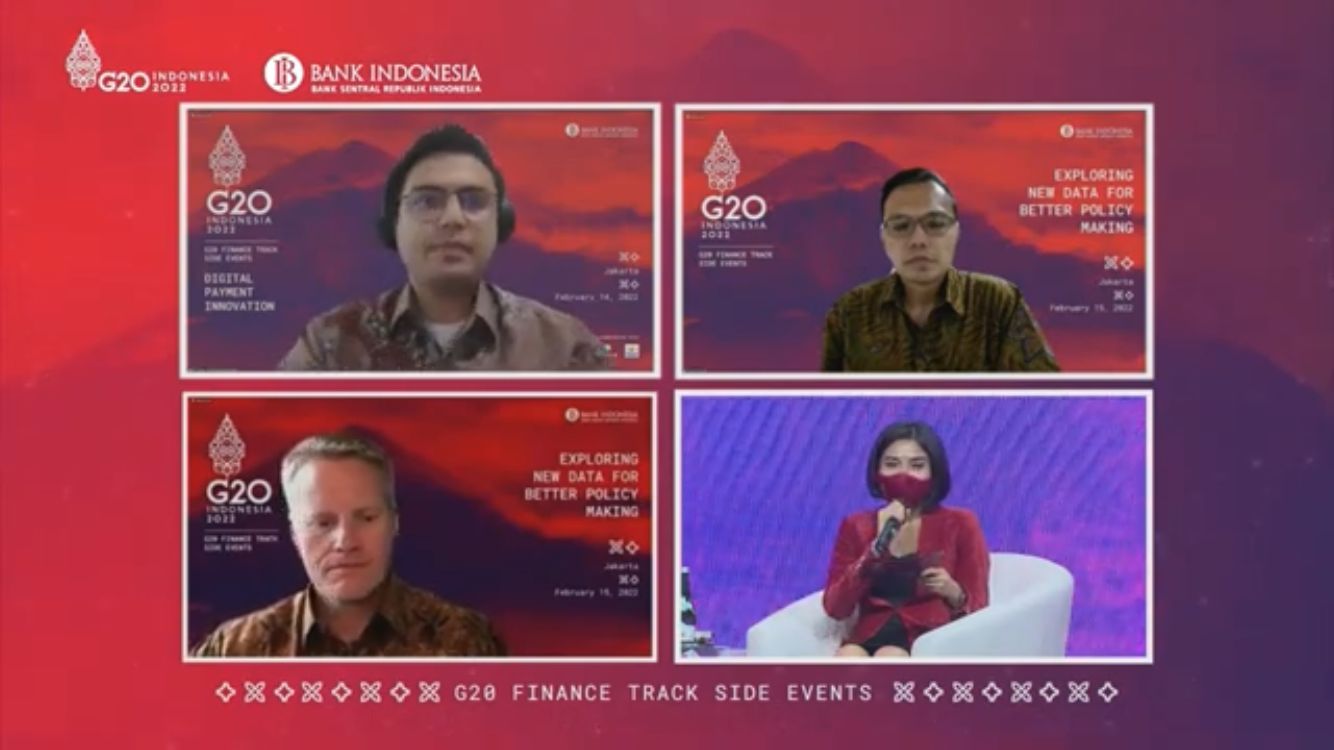In an increasingly online world, data is the new oil, or so the saying goes.
To the uninitiated, this might seem like an exaggeration, given how much data we may knowingly or unknowingly put out through our digital footprints on the internet.
However, when used right, data can lead to tremendous empowering impact to a wide range of society. GoPay managing director Budi Gandasoebrata showed how data synchronization within the GoTo ecosystem changes the lives of millions of people.
“The way we see the future trends, data-driven companies will have a competitive advantage as the more data, the more insights you can have. You have the advantage of making better decisions based on the insights you get because of this data availability,” he said at Bank Indonesia’s G20 side event “Casual Talks: Exploring New Data for Better Policy Making” seminar.
How important is data actually?

According to Budi, data and analytics is also integral in optimizing processes and creating better internal and external policies. Data collection and analytics, he continues, allows better decision making from the start.
At the same time, the required data architecture is needed to ensure that the platform and ecosystem is robust enough for the data to be processed properly.
“But ultimately, as a company with much data that can be associated with personal identifiable information, we need to have a data governance and management function to ensure privacy and security, as well as resilience on the cybersecurity side.”
Within GoTo Financial, the company has three main principles on data infrastructure: data technology, to ensure efficient and scalable infrastructure; data teams, to build and maintain the data infrastructure while also correctly learning from the collection of data to gain better insights; and data governance, to ensure data quality, availability, usability, integrity, and security in an enterprise setting.
“GoTo is one big ecosystem, but it also comprises multiple entities with multiple regulators under the payments and financial services sector, e-commerce and others.
“There are certain security standards and guardrails that we need to comply with to ensure that we, as mere custodians of the data, are compliant with data security principles as well as information security standards to ensure that the data are being used properly and not for ill intent or unethical purposes,” Budi explained.

A wide range of touchpoints
Making impact, from consumers to merchants with data
Within the GoTo ecosystem, the company has multiple touchpoints with consumers and merchants alike through products, services and business units.
The company uses data to analyze customer behavior, for example from transportation insights through trips taken, to payment behavior with GoPay. In the case of digital wallet GoPay, customer data such as top-up frequency and amount, source of funds and average balance provide better insight for the company to provide better services.
“Obviously, as a tech company, data processing is critical to create impact. For our merchants, we can help grow their businesses through these data,” Budi said.
Merchants and micro, small and medium enterprises (MSMEs) also provide valuable insights and information, ranging from frequency of orders to the amount of customer queries. At the same time, merchant-specific data such as most frequent transaction times and geolocation tagging allows for an overall better service by tailoring related features and policies to the needs of the merchants.
“For example, we can push certain promos or campaigns to generate demand for the merchants so we can help grow their businesses.”
Aside from data analytics for the company, GoTo also allows merchants to have their own set of analytics in the form of a virtual dashboard. By visualizing the data, merchants are able to see metrics such as most popular products and sales time dynamics for them to make better business decisions.
For customers, customer satisfaction can be increased by removing daily frictions. By optimizing the customer journey within one app, this ensures that the customer stays within the GoTo ecosystem while increasing the conversion rate and preventing drop off.
Synchronizing data and policy
Budi summed up the importance of data by noting the ability to answer questions when it comes to moving forward, and the same also applies to policy making.
Aside from optimization of features, data benefit GoTo by fine tuning internal SOPs such as merchant onboarding to customer KYCs. Simultaneously, the data also serve as the backbone for advocacy on certain policies that are discussed with industry associations.
“Given the amount of data that we have, it is important to instill a data-driven culture in the organization so that a lot of the key policy changes, as well as the decisions that were made are data-driven, validated, and have a ‘certain degree of science’ associated with it,” he said.



